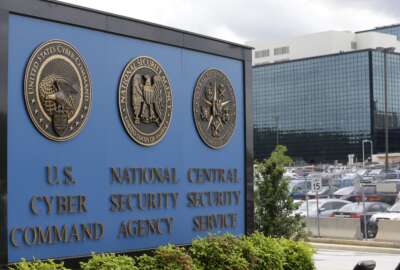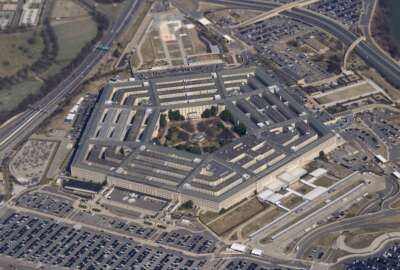Lawmakers resurfacing cyber force idea in 2025 NDAA
Pentagon officials are rejecting the idea of establishing a separate cyber force as lawmakers request an independent study.
The House Armed Services Committee’s bipartisan proposal to require the Defense Department to study the establishment of a cyber force is resurfacing a long-running debate over the U.S. Cyber Command’s organizational challenges.
The amendment, introduced by Reps. Morgan Luttrell (R-Texas) and Chrissy Houlahan (D-Pa.), seeks an independent study of establishing a separate armed force dedicated to cyber, including an evaluation of how it would compare in performance and efficacy to the current organizational approach for CYBERCOM.
If passed, the measure would require the Defense Department to enter into an agreement with the National Academy of Sciences to conduct the evaluation.
CYBERCOM, launched over a decade ago, has struggled to grow its cyber workforce necessary to counter ever-growing cyber threats. The command has historically relied on the military services to provide digital personnel, which has led to readiness issues since the services run their own recruitment and training systems for their cyber operations and digital warriors tend to have inconsistent knowledge and experience when they are sent to CYBERCOM.
The Foundation for Defense of Democracies recently released a report urging the Pentagon to establish a new cyber force, which has once again reignited the debate over the issue.
“The services do not coordinate to ensure that trainees acquire a consistent set of skills or that their skills correspond to the roles they will ultimately fulfill at CYBERCOM. Promotion systems often hold back skilled cyber personnel because the systems were designed to evaluate service members who operate on land, at sea, or in the air, not in cyberspace. Retention rates for qualified personnel are low because of inconsistent policies, institutional cultures that do not value cyber expertise, and insufficient opportunities for advanced training,” the report reads.
“Resolving these issues requires the creation of a new independent armed service — a U.S. Cyber Force — alongside the Army, Navy, Air Force, Marine Corps, and Space Force. There is ample precedent for this approach.”
Following the Space Force example, the study advocates for a smaller force — no more than 10,000 digital warriors and a $16.5 billion budget.
While the fiscal 2023 defense policy bill required the Pentagon to “study the prospect of a new force generation model for CYBERCOM,” the analysis is still not ready.
“As we go through this year’s 1533 study and we evaluate all of the options available for force generation, we certainly are going to look really closely at what are the implications of a cyber service,” Cyber Command and National Security Agency chief Gen. Timothy Haugh told lawmakers in April.
“One of the other responsibilities that is in both our Unified Command plan and in the law is that I am responsible for evaluating the overall health of the DoD cyber workforce. I am responsible to do that in plain English, both to the Secretary of Defense and back to Congress. I think, from our perspective, those reports have allowed us to identify where are the areas that the services could improve. And in doing so, it has also allowed us to build the partnership with the services on how we work together to improve the readiness. Because I think what areas we had seen in the past was not necessarily from the recruiting perspective, but more so from the assignment and retention perspective.”
Pentagon leaders have largely rejected the idea, with Retired Army Gen. Paul Nakasone being the latest former senior official to push back against the proposal.
“I do not think organizing a service is the best way to do that right now. So Cyber Command, the Defense Department have already started to look at this idea of being able to model themselves after special operations command. What are we seeing with Special Operations Command? Always operating a series of professionals and doing this in a manner that is unique in our department. Cyber Command is the same way. I think this is the way we address the problem,” Nakasone told ClearanceJobs.
The provision has a “prohibition against interference,” which prohibits the Defense Department personnel from interfering or exerting influence to alter the findings of the National Academy of Sciences.
If passed, the Academy will have nine months to complete the study.
Copyright © 2024 Federal News Network. All rights reserved. This website is not intended for users located within the European Economic Area.







